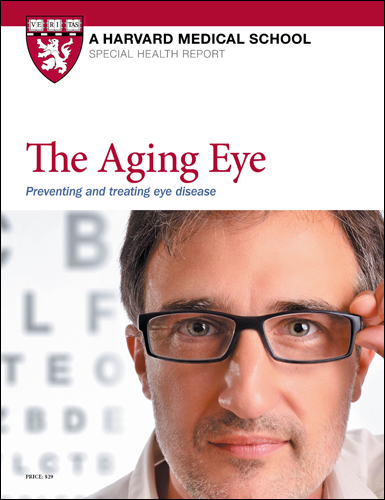Improving vision may help prevent dementia
In the journals
- Reviewed by Howard E. LeWine, MD, Chief Medical Editor, Harvard Health Publishing; Editorial Advisory Board Member, Harvard Health Publishing

Could improving your vision help protect you from dementia? An analysis published online April 25, 2022, by JAMA Neurology suggests it's possible.
The study authors used data from the Health and Retirement Study, a long-running project that surveys a sample of Americans over age 50 every two years. They randomly chose 16,690 people from the 2018 survey, most of whom were 65 or older. They then calculated the population attributable fraction (PAF) for dementia for several common risk factors. (PAF estimates the proportion of dementia cases that would be averted by eliminating a risk factor.) Hypertension had the highest PAF at 12.4%, followed by obesity (9.2%), depression (9.1%), and hearing loss (7%). The ranking was not surprising, as other studies have shown strong correlations between these conditions and dementia risk. But the analysis also found that the PAF for vision loss was 1.8%, similar to social isolation (1.9%), another dementia risk factor well supported by science.
The researchers acknowledge that this is an observational study, and in no way means that vision loss directly causes dementia. But the results do suggest improving visual acuity, such as with eyeglasses or cataract removal, might help maintain cognitive fitness in older adults.
Image: © ljubaphoto/Getty Images
About the Author

Matthew Solan, Executive Editor, Harvard Men's Health Watch
About the Reviewer

Howard E. LeWine, MD, Chief Medical Editor, Harvard Health Publishing; Editorial Advisory Board Member, Harvard Health Publishing
Disclaimer:
As a service to our readers, Harvard Health Publishing provides access to our library of archived content. Please note the date of last review or update on all articles.
No content on this site, regardless of date, should ever be used as a substitute for direct medical advice from your doctor or other qualified clinician.
















